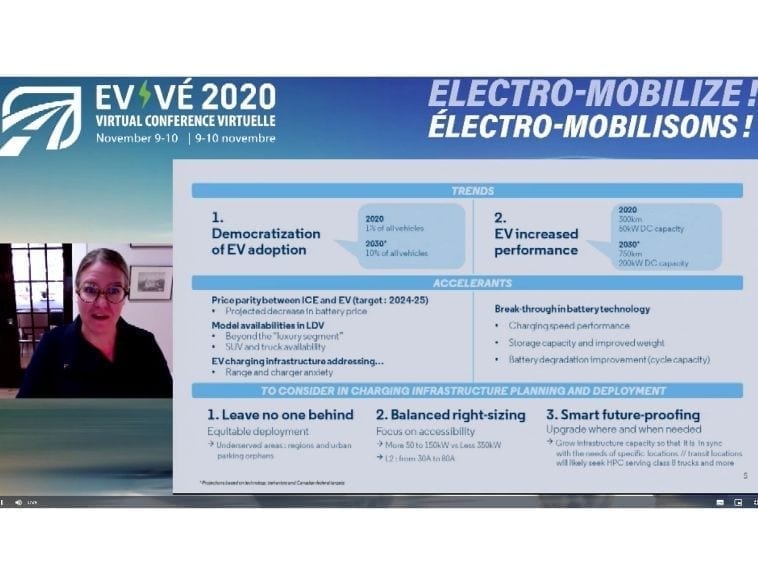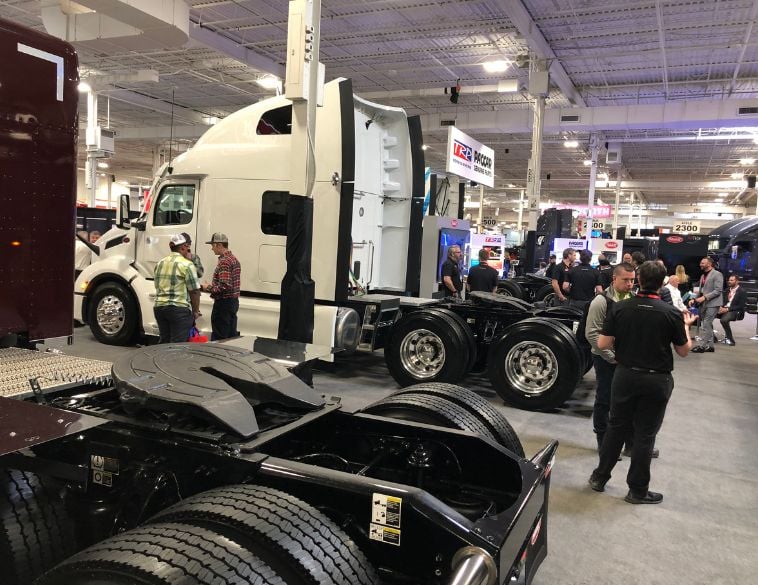Advanced technologies and EV infrastructure take centre stage at this year’s event.
Electric Mobility Canada (EMC) hosted their annual EV/VÉ 2020 Conference virtually this year. The event took place Nov. 9-10, with guest speakers and panelists joining the event from various parts of the globe.
Day 2 of the event began with a presentation by Daniel Breton, President and CEO of EMC, which included an announcement that Statistics Canada just started publishing specific EV sales figures.
The first report debuted on Nov. 9 with data covering the first half of 2020. Statistics Canada is reporting the number of new ZEVs registered in select provinces, the number of ZEVs sold regionally, and ZEVs as a proportion of total new vehicles registered.
“In the coming months we’ll get quarterly reports along with more details for all EV sales across Canada,” Breton said. “This is great news for our industry and for media coverage of the EV revolution in Canada.”
During an interview with the Quebec Minister of the Environment, Benoit Charrette, the audience learned that EV incentives in Quebec would remain in place (at the current $8k level) for the 2021 calendar year, which is great news for the Quebec market.
Battery technology
One of the many panel discussion—The Latest Advancements in Charging: Fast, Superfast, and Smart Chargers—included comments by Geneviève Grenier, VP, Chief Strategy and Business Performance, FLO who explained current trends and forecast where the EV market is heading within the next 10 years.
Grenier explained that although EVs are currently seeing a 1% adoption rate here in Canada, that number is expected to climb to 10% by 2030. Key reasons for this optimism, she said, include a projected decrease in battery prices, which will make EVs more affordable overall; a growing number of models coming to market, including SUVs and trucks; and a growing charging infrastructure, which will alleviate range anxiety.
The other major driving factor, Grenier explained, is increased EV performance, due to advances in battery technologies, which will boost capacity, improve charging speeds and reduce weight. Improvements in battery degradation will also improve the lifespan of batteries, overall.
Charging infrastructure
Another key reason for the projected growth of the EV footprint here in Canada is the advancement in charging infrastructure. Elise Benoit, VP, Marketing at Enel X spoke about the benefits of “smart” charging technologies.
“A smart charger is a charger that is connected to the Internet,” Benoit explained. “That connection essentially makes charging stations grid responsive. It makes it possible for chargers to be connected to the Internet of Things.”
This level of connectivity allows for the optimization of charging. “This means the grid doesn’t have to be supersized when a lot of new EVs come on board,” Benoit added. “There is a way to manage to charge when it happens.”
She also reminded the audience that 80% of charging happens not at fancy third-party locations, but at home. So although the industry is rightly focused on expanding the charging network, “it’s also important to make sure that the chargers we install in our homes are smart too,” she concluded.



